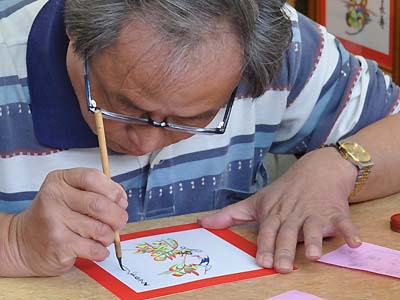First of all, I am very impressed with our knowledge community! I’ve read several postings, commented on a few and generally felt inspired by my classmates. The theories of distributed knowledge and constructivism are at play in our community. By sharing their insights, my classmates have provided me with fresh perspectives on difficult issues. I think the community weblog and our introductory web project are interesting and valuable ways to begin a course focused on “the changing spaces of reading and writing”. A community blog is exciting, challenging (eek, posting an avatar and resizing it!) and effective. I actually started a Class Blogmeister based on this format for my grade four students!
My feelings toward the intentional disorientation on this weblog is one of relief. I like the fact I have to sit back and think about how to connect posts and how to use the available tools to make the most of linking thoughts together (tag searches, searching by name…etc). I think some benefits of disorientation are forcing a student to challenge old thought patterns, reaching more learners (like me!) and displaying/creating knowledge in a new way to create new learning connections. One disadvantage may be some students may feel frustrated or intimidated navigating such an environment and thus, be less motivated to engage in the learning oportunities.
Defining text and technology at the beginning of my MET studies would have been as simple as looking them up in the dictionary. However, given the opportunity to analyze the terms and engage in discussion about them (and to reacquaint myself with the history of Webster’s Dictionary) simplicity is now out the window.
Some of you may have noticed I posted my concept of text and technology a little early. I was not devaluing the importance of our class discussions, but instead I posted early simply because I printed out the module and mixed up the pages. I posted my terms before my introduction!
Now, reflecting on this, I see how some text for me must be in print, in my hands, when it’s “important”. Yet, I also see how our digital module had the same important text organized in a more efficient manner. I discussed the concept of printed materials with several classmates and was relieved to find that other students behaved the same way.
I also discussed anticipated changes in relation to text and technology. The emergence of YouTube as a return to orality, the concept of hyperlinking as an emergent textual form and issues surrounding the educational acceptance of digital literacy. Postman (1992) reminds us that there is a power struggle inherent in any society that adapts technology. However, I now feel philosophically closer to O’Donnell and Engell in “Papyrus to Cyberspace”, from the Cambridge Forum(1999) broadcast, on the grounds of finding a societal balance for the costs and benefits of new technology. For example, I now see YouTube as democratizing and balanced as it does not seek to replace text as it provides people a space to speak from.
At the end of Module 1, I’d like to return to our modular reading (in Module 1 of 540), where we are reminded that we are in a “post-print” society. I love the concept of “post-print”, whether I read it or say it aloud! “I am a member of a post-print society”, very impressive. I now see how writing itself is a technology and I’m excited to learn how “post-print” society adapts to our socially created drive for text representation. Clearly we’re adapting as I’m engaged in a rich discussion for my e-learning class using a community weblog! Erin
References
Cambridge Forum. (1999). From Papyrus to Cyberspace. Available from ETEC 540 Module 1.
Postman, N. (1992). Technopoly: The surrender of culture to technology. New York: Vintage Books.


